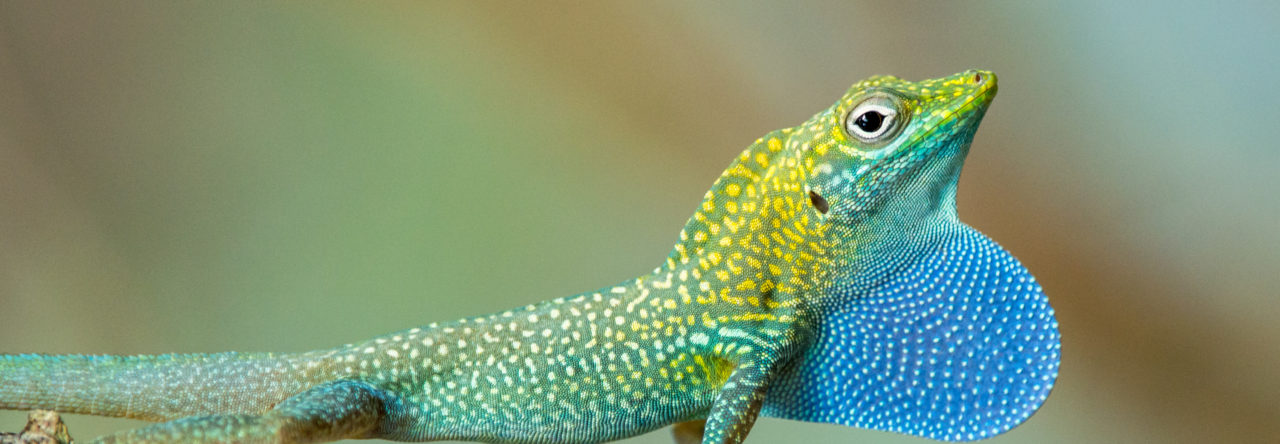Nat Geo just posted an article on the rediscovery of six species of Haitian frogs thought to be extinct. This seemed like a good excuse to re-tell the story of the recent rediscovery of Anolis eugenegrahami from Haiti. This remarkable “semi-aquatic” anole, known from only a single, highly degraded locality, had not been seen in quite some time until an intrepid team of herpetologists set out to look for them. Read what they found here. Now, if only someone could find A. darlingtoni….
Latest posts by Jonathan Losos (see all)
- Evolution in Real Time on Lizard Island - March 23, 2025
- Spider Snags Adult Anolis osa - March 22, 2025
- An Homage to the Green Anoles of New Orleans - March 21, 2025


lukemahler
Really neat to see those frogs in Nat Geo! In addition to this CI/IUCN group, I know Blair Hedges, Richard Thomas, and others have been working to survey frogs and other herps (including anoles) in Haiti over the last couple of years. A lot of the things they’ve found are described in the online publication Caribbean Herpetology (http://php.scripts.psu.edu/dept/evobio/caribherp_site/sight_all.php) that Rich mentioned in a recent post.
When Rich and I went to Haiti in 2009, we were surprised to find most of the endemic anole species clinging on, although often in extraordinarily restricted (and shrinking) habitats. Things aren’t looking good for a lot of the forest remnants we encountered. However, I was recently reminded by a couple of folks that many habitats on Caribbean islands and elsewhere were nearly completely eliminated over a century ago for land use and have since recovered without substantial loss of reptile species (at least that we know of). I certainly hope land use patterns in Haiti change before it’s too late.
Joseph Burgess
Great story. Look forward to hearing more.
Rich Glor
For those interested in more details on A. eugenegrahami, I wrote a more detailed account of our trip for my departmental newsletter. The story appears on page 29 of the PDF document available via the following link: http://www.rochester.edu/College/BIO/newsletter/May2010.pdf
lukemahler
Just to clarify, it looks like Blair Hedges was directly involved in the frog survey Jonathan reported on above (see here).